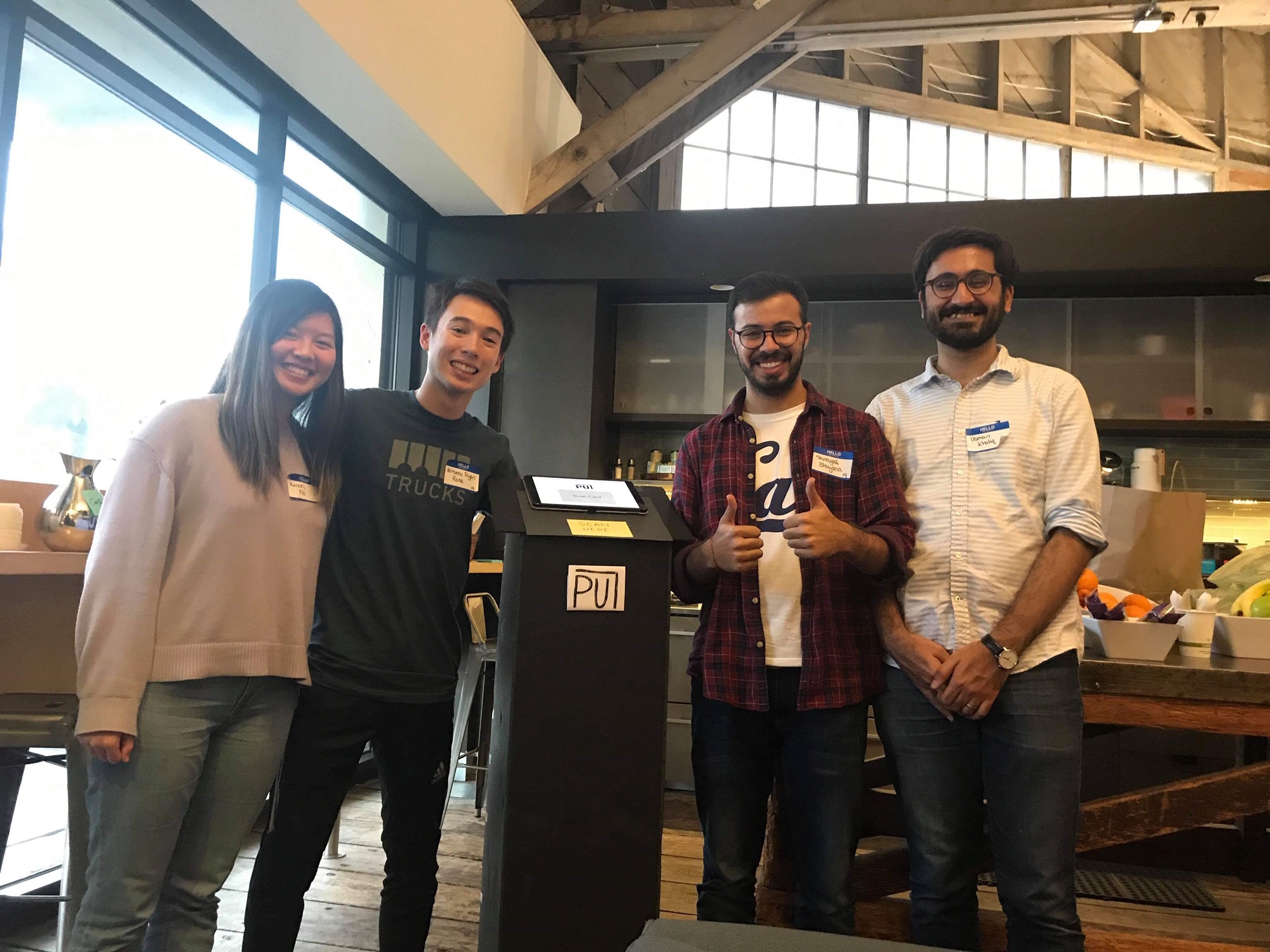Pul
A Blockchain based distributed system that allows people without agency the opportunity to have their voices heard in the decision making process
Earlier this month, I got selected for the IDEO CO-Lab makeathon in San Francisco and got the cool opportunity to dabble in emerging tech(blockchain, AI, VR amongst others) while prototyping a solution in their Collaborative Cities portfolio. My team and I received the following prompt:
How might we build a digital community engagement platform that creates vibrant, collaborative conversations between people who inhabit spaces and those who govern them?
In most cities and administrative units, governance is largely based on historical models that tie political representation to land ownership. Consequently, a vast majority of people who live in a specific place who and might be deeply connected to it, are left out of the decision-making process.
We selected homeless people as the target users for our prototype. By mapping out the user journeys of homeless people, and identifying their interactions with different stakeholders, we identified major pain points that homeless people face in getting their voices heard in the decision making processes at the local governance level.


Our Solution
Based on our findings, we envision Pul, a blockchain based distribution system that allows homeless people to have their voices heard in the decision making process at the local government level. Pul would consist of a series of kiosks set up in public places that are frequently visited by homeless people, such as in soup kitchens and homeless shelters. The users would be able to interact with the kiosks through an interactive menu that would be primarily voice and image based. The kiosks would provide useful information to the users, such as employment opportunities and information about other soup kitchens and shelters. At the same time, the kiosks would get information from the users on issues that they face, as well as elicit feedback from them on local government policies that are directly affecting them. By recording this information on a blockchain and making it publicly available, we would help civil society organizations to use this data and apply pressure on the government to consider the voices of people who are frequently ignored in civic decision making processes.
The users would use any government ID to record their responses into the kiosk. At the backend, the blockchain would use a Zero-Knowledge protocol to verify the identity of the user without recording any identifiable information. This feature is critical to ensure that the information collected from the people is completely anonymized.
Pictures of the Prototype






The Team!
A huge shoutout to Shreyas, Karen and Ryan for an awesome experience building Pul!


Leave a Comment